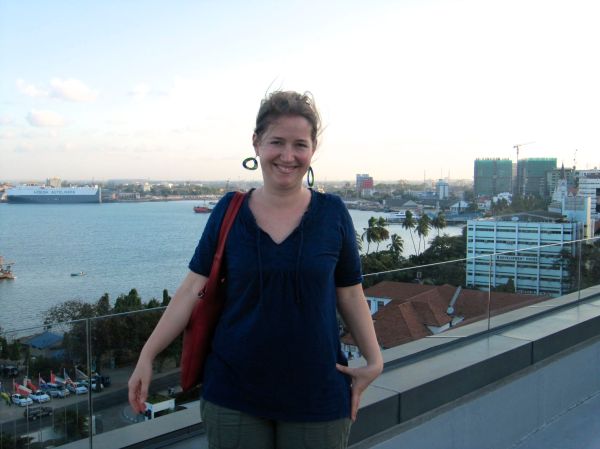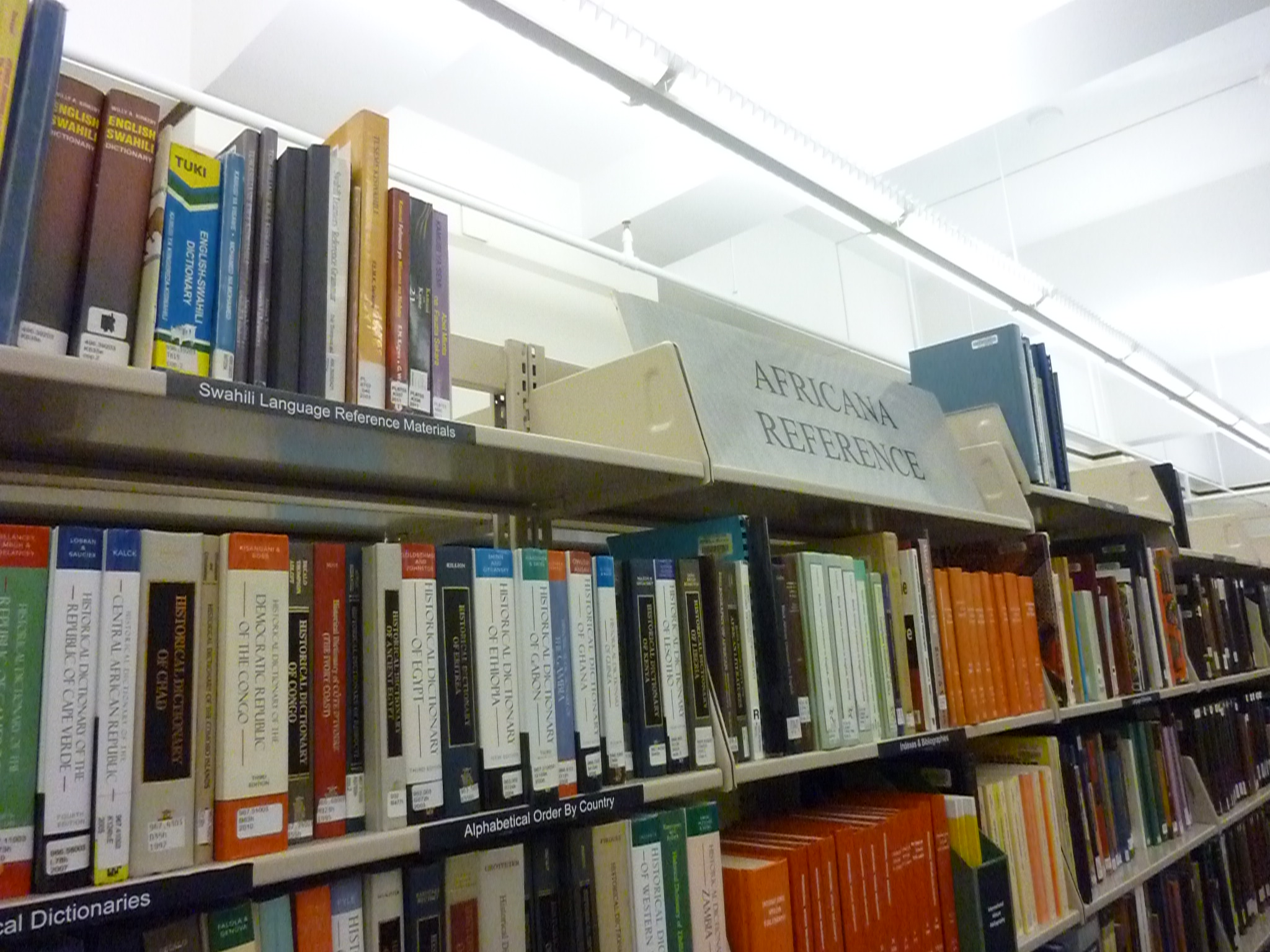When University students enter classroom for the very first session of their semester-long Swahili course, many are quite surprised to see Dr. Kristina Riedel standing at the lectern or writing the day’s vocabulary list on the board. They tentatively take their seats, perplexed as the Berlin born linguist hands out syllabi and greets them with Habari Zenu ‘how are you’ in Tanzanian Standard Kiswahili. Students pursuing their first semester of Swahili coursework may be surprised to know that Riedel’s enthusiasm and earnest passion for East African cultures and languages spans the breadth of her young adulthood and much of her academic career.
Riedel took her first trip to Tanzania at the age of fourteen on a family vacation and was immediately smitten with Swahili society and culture. She endeavored to return and make the coast of Tanzania her new home. Years later she pursued her dream by getting enrolled in a four-year Swahili degree program. One of the requirements for the curriculum was a semester-long intensive study abroad program at the Institute of Kiswahili and Foreign Languages in Zanzibar town and another semester at the University of Dar es Salaam. Riedel excelled in Swahili and her quick grasp of the language earned her the respect of Tanzanian students enrolled at both institutions, with some of whom she maintains close friendships to this day.

Dr. Kristina Riedel
At the culmination of her undergraduate studies, she received her B.A. in African Language and Culture, with a concentration in Swahili. Riedel was awarded her M.A. in 2003 and Ph.D. in 2009 in Linguistics from the University of Leiden, having completed her graduate fieldwork and dissertation on the Syntax of object marking in Sambaa – a Bantu language spoken by the Wasambaa people situated in northwestern Tanzania.
Riedel has dedicated much of her academic and professional career to conducting fieldwork on Bantu languages spoken in different parts of Tanzania, namely Swahili – a Coastal lingua franca on the African continent’s east coast spoken in Kenya, mainland Tanzania, the Zanzibar archipelago, Uganda, Democratic Republic of Congo and other Sub-Saharan African nations. She currently serves as the Director and Language Coordinator of Sub-Saharan African Languages, advisor for the Sub-Saharan African Languages Minor, and lecturer of Swahili with the University of Illinois’ Department of Linguistics. She is also one of the catalysts for the new Swahili reference section at the one subject library of our university library – International and Area Studies Library (IASL), located in the Main Library Room 321.
Beginning in fall 2013, Riedel established a relationship with IASL by collaborating with African Studies Bibliographer, Dr. Atoma Batoma, on a central space to access Swahili language reference materials including comprehensive dictionaries, grammar guides, and textbooks, and companion audio CD-ROMs used in the University’s Swahili curriculum. Riedel compiled a list of useful materials shelved in disparate sections within the University Library’s Main Stacks and helped organize their transfer to the International and Area Studies Library’s Africana Reference Collection. These materials are located on a newly designated shelf for Swahili language learners. Riedel hopes that showing the volume of resources available will not only encourage Swahili language learners to utilize the University’s library, but also get an idea of the scope of Swahili materials published and available to them. A current truncated list of Swahili reference books available at the IASL can be found here, but please note that this list is growing as Swahili reference books are transferred from the Main Stacks. These reference books do not circulate, but library patrons may read them in the IASL. They can also scan them at the IASL and send the scans to their email addresses, or save them to their USB flash drives.

Africana Reference Collection and Swahili materials at the International and Area Studies Library
Aside from the Swahili reference resources at the IASL, Riedel has used other avenues to promote the visibility of topics on East Africa such as offering a new course LING199: Language, culture and identity in East Africa and the Swahili-speaking world. This class covers Swahili language and linguistic diversity in East Africa. Riedel also worked with ATLAS information technology services to design a more robust Swahili Program website for University of Illinois faculty and students. The University’s Swahili Program website has been completely refurbished as she updated a number of the site’s features such as web links to online Swahili dictionaries, the Swahili Proverbs website created and funded by the Center for African Studies, and resources created at the University of Illinois’ library including: the Africana Film Database, Africana Collections and Services website and the African Studies Internet Portal.
Furthermore, the Swahili website now includes updated information on the 18 credit hour Sub-Saharan African Languages Minor for undergraduate students interested in gaining proficiency in Bamana, Lingala, Swahili, Wolof, or Zulu. This minor requires students to complete coursework in African Studies and Linguistics and compliments nearly any curriculum, especially for students who have an interest in working or studying abroad in Africa. Riedel also encourages Swahili language learners and those interested in East Africa to check out her public YouTube collection of documentaries, movies, news programs, etc.
University of Illinois students seeking to gain proficiency in Swahili can expect a structured, rigorous, and first-rate curriculum from the University of Illinois’ Swahili program and from Dr. Riedel, or as many of her students call her, “Mwalimu ‘teacher’ Kristina.” And beginning this Spring 2014 semester, the IASL now houses a number excellent reference resources on Swahili. We welcome users from various backgrounds to come into our library and use our resources. IASL also has librarians to help you with research questions on these topics.



